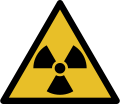Australian academic study supports nuclear power
Thursday, December 22, 2005

A group of Melbourne scientists has released a study of the energy problems confronting Australia in the future. The study endorses the use of nuclear energy and attacks some of the data used by anti-nuclear campaigners.
The scientists from the University of Melbourne say their research shows that the benefits of nuclear energy have been underestimated and concerns about nuclear waste overplayed.
The six month study compared the environmental impact, health risks, economic effects and social implications of the use of fossil fuels, renewable energy sources such as wind and solar energy, and nuclear power.
According to the Melbourne University, the investigation will significantly impact the nuclear debate in Australia, with findings showing that hundreds of times more uranium could be available than was predicted in a widely quoted European study.
Associate Professor Martin Sevior, of Melbourne University's school of physics, claims the recent study bolsters the case for Australia to invest more in nuclear energy. Sevior says his research into nuclear waste disposal should help dispel many environmentalists' fears.
"One thing that's perhaps not always realised is that the amount of waste that comes out of a typical plant is around 30 tonnes a year, he said. "The amount of waste that comes out of a coal-fired power plant is around 1,000 tonnes a day."
Prof Sevior says his study has exposed flaws in the European study into the limits of the uranium industry. "This previous research overestimated the energy costs and carbon emissions generated by the construction of nuclear power plants and for mining uranium," Prof Sevior said.
The Australian Conservation Foundation's (ACF) nuclear campaigner, Dave Sweeney, says the study appears flawed and does not provide a sound argument for the use of nuclear energy.
"It glances over some really key concerns of proliferation, key areas of reactor safety are not delved into too deeply and they have direct links to industry websites for further information," said Mr Sweeney. "I'm not sure it's altogether appropriate or altogether balanced to be referring people to the nuclear industry's own websites for further information on such matters as radioactive waste, nuclear weapons and nuclear reactor safety."
The six-month study found Australia has more uranium than was previously thought. "We have enough uranium in Australia to power the country for thousands of years," said Prof Sevior.
Friends of the Earth nuclear campaigner Dr Jim Green said nuclear power should never be considered as an energy source. He said greenhouse emissions saved by switching to nuclear power were only about 5 per cent of total emissions and could only be achieved if thousands of reactors were installed globally.
Dr Green said an energy debate in Australia was necessary, but it had to go beyond just the nuclear alternative.
Sources
- Nick McKenzie. "Melbourne scientists argue the case for nuclear energy" — Australian Broadcasting Corporation, December 22, 2005
- Sarah Wotherspoon. "Call to build nuke plants" — The Herald Sun, December 22, 2005
- "New investigation shows nuclear power will last longer, cause less emissions" — The University of Melbourne, December 21, 2005